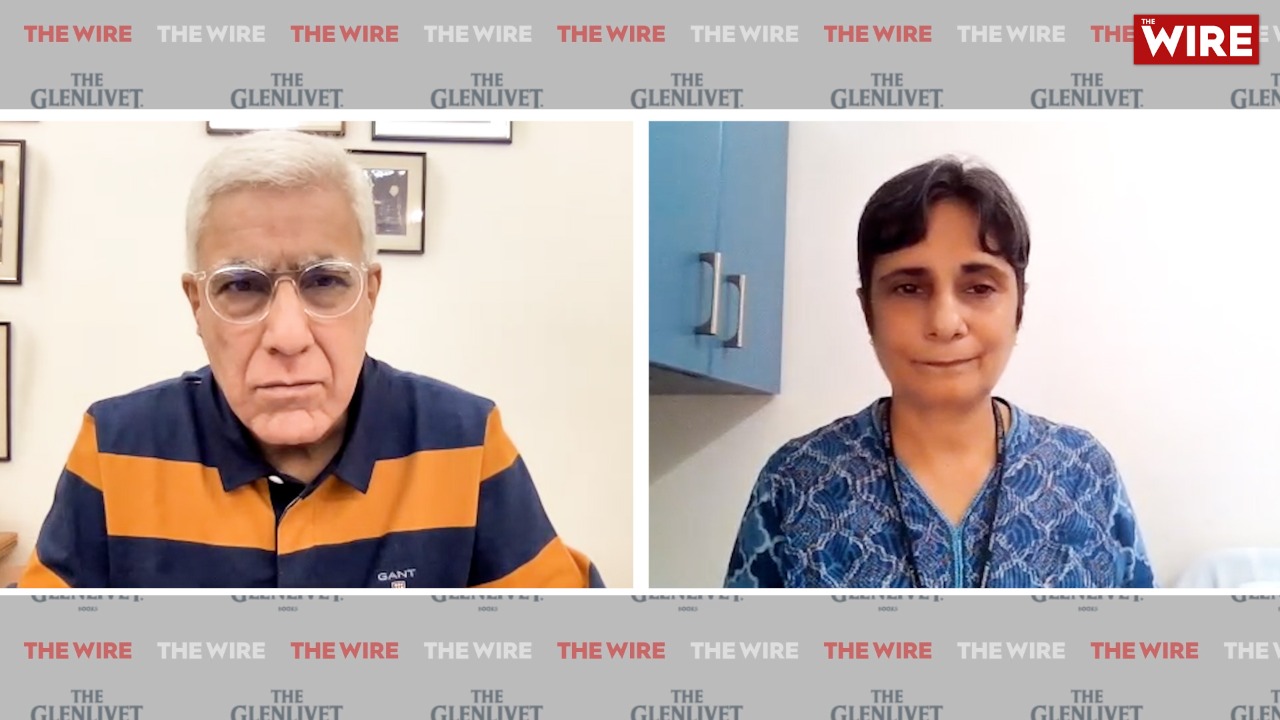
Journalist, television commentator and interviewer.
Noted virologist Gagandeep Kang told The Wire that the Indian government must prioritise the second doses of COVID-19 vaccines for people older than 60 years and those with comorbidities – before vaccinating other age groups.
In a 44-minute interview to Karan Thapar, Kang, a professor of virology at the Christian Medical College, Vellore, delivered several sharp wake-up calls to India, lest it become complacent against the ongoing COVID-19 epidemic.
Kang, who is also a member of the government’s COVID-19 Working Group, also expressed her concern that “we have no evidence whether protection is declining with time.” If the government has the data, it hasn’t been placed in the public domain.
She also said officials should do everything they can to accelerate vaccine imports and bring in other vaccines available to the rest of the world, with specific reference to the mRNA vaccines made by Pfizer and Moderna. She said the immunocompromised section of the population “needs them immediately”.
She also said there is no need to reduce the gap between two doses of Covishield because there is no evidence that doing so will make more vaccines available to the eligible population. From an immunological perspective, she said, the 12-16 week gap is best and must be continued.
Rijo M. John, a public health policy expert in Kerala, shared data with The Wire that indicated that 45% of people older than 45 years haven’t had received their second doses. Kang referred to this data and said, “It’s very worrying that such a large proportion hasn’t had a second dose.” Her opinion was that closing this gap must be the government’s top priority.
Kang also said that the COVID-19 Working Group and the National Technical Advisory Group on Immunisation (NTAGI) have repeatedly advised the government to do just this, but that the government hasn’t responded favourably. However, she also said that the bodies are fundamentally advisory groups and that only the government could execute plans.
“I’m sure the government is doing the best it can,” she added.
But is it good enough? This was the first adult immunisation programme of its scale, Kang replied. However, she also said she wouldn’t be “particularly worried if every adult does not get two doses by the end of the year” and that her focus was on getting the elderly and those with comorbidities fully vaccinated as soon as possible.
A booster shot?
Kang also discussed boosters doses for the existing crop of COVID-19 vaccines for people older than 60 years.
“Abroad, it’s quite clear that protection against hospitalisation and death declines with time,” she said, referring to data from western countries. “Governments have to decide at what point of decline will they choose to give boosters.”
The problem in India, according to her, is that “we have no data” – at least not in the public domain. She did say she assumes that the Indian government has these numbers. “I am assuming the government has it. We have vaccine tracker data, but it does not break down by age, location or vaccine.”
Data analyst and journalist Rukmini S. established in a recent report that that in Kerala, Tamil Nadu and Mumbai, where the ages of those who have died with COVID-19 is recorded, there has been an uptick in the number of victims older than 60 years. Kang referred to this report and said it isn’t conclusive but that it did echo what the British researchers had found: that the vaccines’ protection against hospitalisation and death drops after six months.
Now, in Britain, most of the first and second doses were of the AstraZeneca shot, but the booster has predominantly been Pfizer’s mRNA vaccine. Could that tell us anything about which vaccine should India use for its boosters, should the government decide to?
“If based on antibody data,” Kang said, “mRNA and protein vaccines are the best for boosters.”
Two protein vaccines, Covavax, which is Serum Institute of India’s (SII) version of Novavax, and Corbevax, made by Biologicals E, and an mRNA vaccine being made by Gennova could be considered if only India-made vaccines are to be used for booster doses, she added. However, none of these vaccines have been cleared by the Indian drug regulator.
So “we should do everything we can to open up imports and bring in other vaccines available to the rest of the world. We have a section of the population that needs them immediately – people who are immunocompromised.”
Watch the full interview here.

